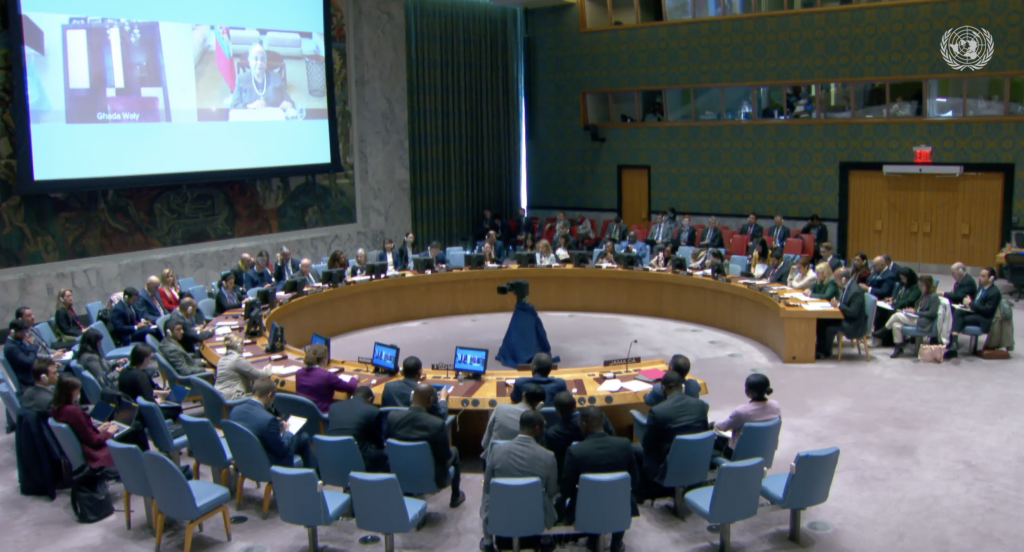Statement by Deputy Permanent Representative Anna Evstigneeva at UNSC briefing on the situation in Haiti
Mr.Minister,
We welcome you to this meeting. We thank SRSG Salvador for the briefing on the situation in Haiti and the work of the UN Integrated Office. We also listened carefully to the remarks by Ms.Russel, Ms. Fathi Waly, and Ms. Manigat. We welcome representatives of Haiti and countries of the region.
The situation in Haiti remains complicated. Crime rate is growing by the day. Since the beginning of 2023, more than 2,400 people have been killed, which is more than in the entire previous year. Outbreaks of violence that routinely occur in Port-au-Prince often affect civilians. Apart from the capital city, an alarming situation unfolds in Artibonite department with bands winning control over larger territories.
We are concerned over the reports that schoolchildren increasingly often become hostages of street band confrontations. One in four schools in Haiti has been closed since the escalation began last year. UNICEF estimates that more than 1 million children have no access to education. The situation is even worse with regard to medical care and access to basic goods and services. We note the efforts of the UN humanitarian branch and other humanitarian organizations to assist civilians. Attacks on humanitarian convoys and the looting of supplies are unacceptable.
Mr,President,
International community remains focused on Haiti’s problems, which is evidenced by the two recent Security Council resolutions on the extension of the sanctions regime and the establishment of the Multinational Security Support Mission in Haiti. We are closely following progress in the arrangement of this non-UN operation. It is important to keep the Council updated on the detailed concept of this operation, including the rules of use of force and exit strategy. This being said, we note the voices both in Haiti and among the Haitian diaspora that speak up against foreign intervention.
Those voices must not be ignored. The Mission needs feedback from the Haitian society. Until this day, Haiti’s history of foreign interventions has been mostly negative. Of all Latin American countries, Haiti has suffered the most from colonial oppression. Even after its independence, Haiti had to pay off with France, the former colonial power, for its acquired freedom.
Mr.President,
We are convinced that foreign interference is one of the main factors of instability in Haiti. Various tools, from political technology schemes to unilateral sanctions, are employed to shape the country's political space as desired by individual capitals. In the meantime, the country is plunging deeper into a crisis of statehood and legitimacy. Haiti has not had democratically elected authorities for more than six months.
The current multidimensional crisis in Haiti originated exactly because of the malign practice of imposing on the Haitians such political models that are fully detached from local reality, national interests, and cultural peculiarities. We advocate responsible international assistance to that country, with a focus on a political settlement based on the objective demands of the Haitians themselves and on finding political solutions that would be acceptable to the opposing parties.
The assassination of Haitian President Jovenel Moïse more than two years ago remains an unresolved crime. We can hardly anticipate a different scenario, since the investigation is being carried out by the same country whose citizens are suspected of committing the assassination. We call for a transparent investigation into this tragedy, which triggered destabilization of the entire country.
Mr.President,
Speaking of sanctions, we welcome the expansion of arms embargo to all non-state actors in Haiti, which the Security Council approved of in a decision dated October 19.
We trust that this measure, together with the work of the Panel of Experts of the Security Council Committee established pursuant to resolution 2653 and the United Nations Office on Drugs and Crime (UNODC), should help to shed light on the sources and routes of smuggling, since no notable progress has been made in countering the illegal entry of small arms into the country, including by the United States – the largest manufacturer in the region. We call on Member States to take all necessary measures to remedy this extremely unwholesome situation.
We are ready to consider proposals to expand the sanctions list within the framework of Security Council Committee 2653. At the same time, we believe it necessary to take the most responsible approach when it comes to adding new names. This work should be carried out in order to have the situation in Haiti stabilized and not with a view to "cleaning up" the political landscape in the interests of West-promoted leaders. Russia stands for a thoughtful and targeted use of UNSC sanctions regime against Haiti. This must not be a carbon-copy of unilateral coercive measures that had been introduced by some countries.
Thank you.
